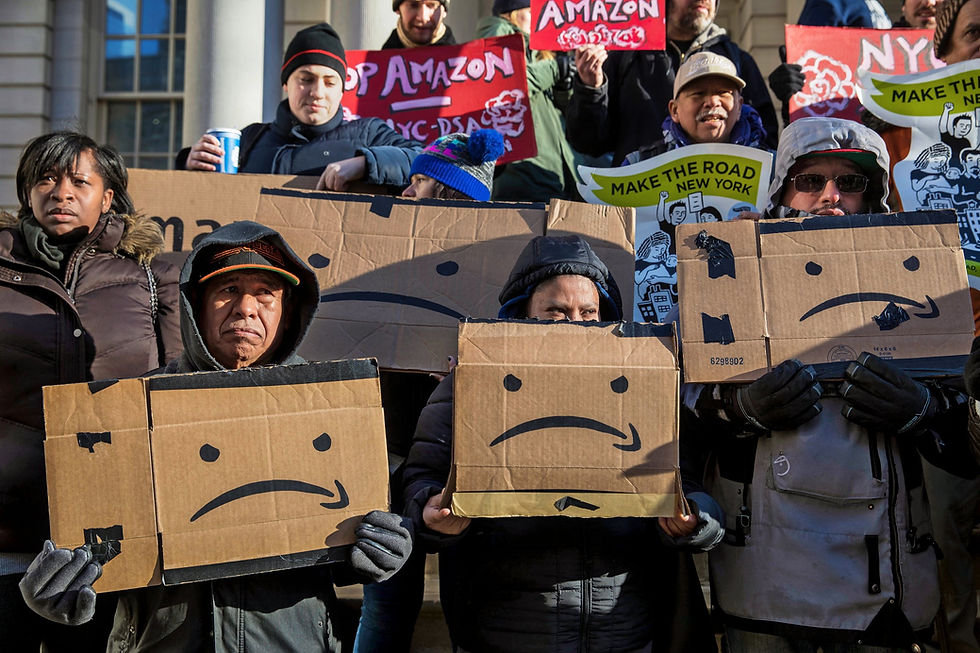A Toolkit for Companies That Cause a City Crisis
- Feb 19, 2019
- 3 min read

The news that Amazon has decided to pull the plug on their proposed HQ2 location in Long Island City is a sign that the old rules no longer apply. It’s surprising because Amazon, Mayor Di Blasio, and Governor Cuomo followed the traditional playbook made popular by the Bloomberg Administration: to get projects with perceived citywide benefits approved over the protests of local stakeholders who stand to suffer, create the perception of ponderous inevitability. And, if possible, avoid community control by putting the project under the state’s jurisdiction.
Yet times have clearly changed since the Bloomberg era. Corporations looking to relocate now need to be nimbler, more empathetic, and more deeply engaged with their new homes. Why?
For starters, September 11th and its unifying effect on the city is a distant memory. The economy now is at the tail end of a boom, with the city bursting at the seams with successful companies. And because of the high housing costs and the pervasive sense that the wealth hasn’t been distributed evenly, people are no longer willing to shrug their shoulders and say, “what are you gonna do?” when changes confront community, especially when those changes include corporations receiving tax breaks.
It’s important to realize that corporate relocations aren’t viewed by the public as exchanging real estate for jobs. Corporate relocations are when selected communities get their moment in the spotlight and a chance to engage with actual power brokers to address what they perceive to be their problems. In this case it happens to coincide with a national issue: wealth disparity.
To be clear, I’m neither an advocate nor an opponent of Amazon’s proposed campus in Queens. But I am an interested party. At Department of Here, we help shepherd cities through the challenges caused by economic or ecological disasters, which has led us to start building a Toolkit for Cities in Crisis. Spurred by the Paradise fire in California, and the closure of the GM plant in Lordstown, Ohio, it’s a ready-to-roll tactical kit that not only addresses the financial realities of cities suffering the after-effects of a calamity, but it also works to salve the communal pain. We help people ask the hard questions of themselves, “Who do we want to be?” “What are our enduring values?” and, “What cards do we still have left to play?”
Now, watching Amazon give up on their proposed Long Island City campus, we see a new market for our toolkit: corporations who, by virtue of their size, cannot help but throw a community in complete disarray just by arriving. Call it a Toolkit for Companies that Cause a City Crisis.
By engaging with their new neighbors and listening as they ask these questions, companies can understand what makes their new hometowns tick more fully. With that information in mind, leadership teams can produce a strategic roadmap that incorporates the community’s pain points, aspirations, and fears. Then they can engage substantively - in a way that feels like an actual discussion among equals to the neighbors, not an obligation accompanying a fait accompli - to create productive partnerships that distribute the benefits more effectively and emphasize common values.
Because big companies, whether they’re coming to town or leaving, will inevitably rock the boat. The best they can hope for is to understand the repercussions of their movements in advance, empathize with their neighbors, and clearly communicate how everyone will prosper going forward.

Comments